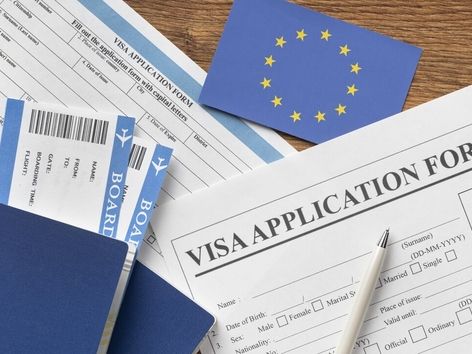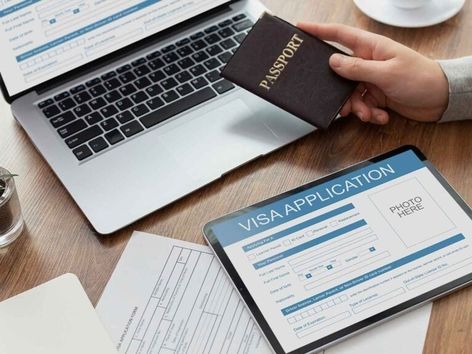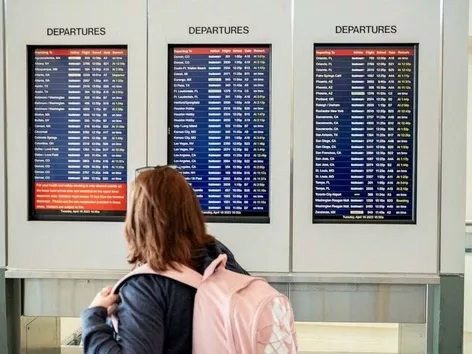EU approves amendments to the Schengen Borders Code: visa prices and other important details

The Council of the European Union has approved a list of updates to the Schengen Borders Code, as well as rules for border control of persons crossing the EU's external borders. It also approved a decision to increase the price of Schengen visas. Read more about the main updates to the Schengen Borders Code
On May 24, the EU Council finally approved the updated Schengen Borders Code. This set of rules regulates the management of the EU's internal and external borders, as well as border control rules for persons crossing the EU's external borders. The press service of the EU Council reported on this decision.
The updated code provides for the possibility of introducing agreed temporary restrictions at the EU's external borders in the event of a large-scale public health emergency. This decision will be made by the EU Council, which allows for a quick response to crisis situations and ensures the safety of citizens.
The Schengen area includes 27 states, all EU member states except: Ireland and Cyprus. The Schengen area also includes non-EU countries: Iceland, Norway, Switzerland and Liechtenstein.
Main provisions of the updated Schengen Borders Code
During the COVID-19 pandemic, the European Union had limited capacity to introduce binding measures, providing only recommendations on travel restrictions for member states. However, the new revised Schengen Borders Code changes this situation, giving the EU Council the ability to introduce more concrete measures. This includes testing, quarantine, self-isolation, and other health-related measures for non-EU nationals entering the EU.
The new code also aims to combat the instrumentalization of migration by allowing member states to limit the number of border crossing points or reduce their opening hours. This will help strengthen border surveillance measures, which is especially important in the face of increased migration pressure. In addition, the code provides clear guidelines for the reintroduction and continuation of internal border controls in the event of a serious threat to public policy or internal security.
Member States are obliged to assess the necessity and proportionality of such decisions, as well as to consider alternative ways to achieve the objectives. The revised regulation sets a maximum period for internal border controls, which may last a maximum of two years. In exceptional situations, this period may be extended for another six months with the possibility of a further extension for one year.
One of the key aspects of the new code is to encourage Member States to use alternative measures, such as police checks and cross-border cooperation, to minimize the need to re-introduce temporary border controls. These measures should be clearly separated from systematic checks at the EU's external borders.
Additionally, the new transfer procedure allows a Member State to transfer third-country nationals apprehended in the border area who are illegally staying on its territory to the Member State from which they originally came. This is aimed at strengthening coordination and cooperation between Member States in managing migration flows.
The new regulation enters into force on the twentieth day after its publication in the Official Journal of the European Union and is directly applicable in the EU. This decision significantly enhances the EU's ability to respond to crisis situations and ensure security at its borders.
For safe relocation to any country in the world, obtaining citizenship and employment, use the advice of an international lawyer. We help to solve complex and simple issues for your comfort and safety in any part of the world.
New prices for Schengen visas
The European Union has finally approved the decision to increase the cost of Schengen visas, which will come into force on June 11. This information was published in the Official Journal of the EU on May 22. According to the proposal of the European Commission, adopted on March 14, the price of a Schengen visa for adults will increase from 80 to 90 euros, and for children aged six to 12 years - from 40 to 45 euros.
In some cases, particularly under a special procedure, the cost of a visa can reach 135 or even 180 euros. This depends on the application of the special procedure in accordance with Article 25a(2) of the EU Visa Code.
The European Commission justifies the price increase by the need to take into account inflation and revise salaries for EU employees. The Commission has the right to propose such changes every three years to maintain the balance of expenditures and revenues in the EU budget.
The decision will enter into force on the twelfth day after publication in the Official Journal of the EU, i.e. on June 11. This innovation will have a significant impact on travelers planning to visit Schengen countries.
Igor Usyk - Head of Migration department at VisitWorld
To ensure a safe move to a new country, I advise you to consult a specialist. My colleagues, qualified specialists with a legal education, will help you avoid unpleasant situations during migration.
Products from Visit World for a comfortable trip:
Travel guide for 200 countries;
Legal advice from a local specialist on visa and migration issues;
Travel insurance around the world (please select the country of interest and citizenship to receive services);
Medical insurance all over the world.
Recommended articles
2 min
Expats
Australian government launches working holiday visa lottery: important details
Citizens of Vietnam, China, and India will be able to participate in a lottery to obtain a work visa to Australia in the next financial year. This innovation should simplify the visa application process for citizens of these countries, as well as strengthen control over migration processes. Learn more about the Australian work visa lottery
23 May. 2024
More details2 min
Employment
New visa rules in New Zealand: important details for foreign workers
The New Zealand government is introducing strict requirements for the duration of work visas under the AEWV program. Find out more about the key changes to the Accredited Employer Worker Visa (AEWV) program and how the innovations will affect foreign workers in New Zealand
26 May. 2024
More details2 min
Transport
Unfortunately, there are risks associated with travel, and they are most often associated with flight delays and cancellations. At the same time, not all airlines openly disclose what rights and privileges passengers in such situations have. Find out what bonuses you can expect and how to get compensation and reimbursement from the carrier
24 May. 2024
More details2 min
Expats
Sweden will introduce digital passport checks for foreigners applying for study or work in 2025. Find out who can use the new system, how the digital checks work and what the requirements are for applicants
11 Sep. 2025
More detailsAll materials and articles are owned by VisitWorld.Today and are protected by international intellectual property regulations. When using materials, approval from VisitWorld.Today is required.
